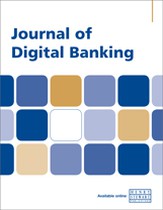FinTech at the frontier: Technology developments supporting financial inclusion in Niger
Abstract
Micro-, small- and medium-sized businesses struggle to access growth capital, particularly in the developing world. They are critical to economies everywhere, but banks and microfinance institutions (MFIs) struggle to reach rural businesses because of data challenges, large distances and low profits. FinTech solutions have transformed financial inclusion both for businesses and individuals across the developing world, and Africa, in particular, has been impacted by the development of mobile money, primarily in East Africa. CARE International introduced its first Village Savings and Loan Association (VSLA) in Niger in West Africa, and VSLAs are now the largest financial institution in Niger, transforming women’s economic empowerment, although with limited overall funds. Commercial ecosystems based on hubs are also a natural focus for community finance because of the role they already fill for primary producers. Financially excluded populations with very limited access to infrastructure tend to have very low literacy and limited exposure to technology; however many, especially women, are eager to engage with a connected society. Digitising VSLAs and commercial ecosystems to create secure records not only helps microbusinesses and local lenders, but can also create investment opportunities in global capital markets. Blockchain-based solutions can help to overcome barriers faced by mobile money providers. This paper shows how solutions deployed in frontier territories like Niger can bridge the gap between rural populations and the formal financial system to build more sustainable and secure communities.
The full article is available to subscribers to the journal.
Author's Biography
Sofie Blakstad taught herself programming and business design, and spent most of her career building banks, including the first online bank for UBS. Having worked for eight major international banks in everything from IT infrastructure delivery to business transformation, run programmes in 60 countries worth over US$1bn and supported start-ups, Sofie decided the last thing the world needs is another bank, and thus was hiveonline born. Sofie is also Lead Researcher for the Sustainable Digital Finance Alliance and has been invited to speak at UN Climate Week NYC, Money2020, SIBOS, G7, G20, UN and World Bank/IMF Summits. She advises the UN and central banks on applications of FinTech to sustainable capital finance, blockchain, alternative currencies and trust. Sofie chairs the Edinburgh Futures Institute advisory committee and holds an MSc in Informatics. Sofie’s second book, with Rob Allen, FinTech Revolution (Palgrave Macmillan, 2018), was named ‘One of the Best Fintech Books of All Time’ (Book Authority).
Latif Amars has a strong interest in global sustainability issues, especially how the global community makes sense of, negotiates and attempts to solve environmental issues. Towards this goal, he worked with Oxfam to bolster climate resilience in the Horn, East and Central Africa region, operationalised what became a leading organisation on climate change in Tanzania and engaged in the UN climate negotiations. Frustrated with the structural inertia that hinders efforts to solve the environmental challenges, he decided to focus on solutions and helping entrepreneurs, companies and governments to explore sustainable pathways. To this end, he published research articles on sustainability transitions and worked to connect pioneers to bring about systemic change in the energy sector. Before joining hiveonline, Latif worked with the World Bank, analysing client country environmental and natural resources challenges.
